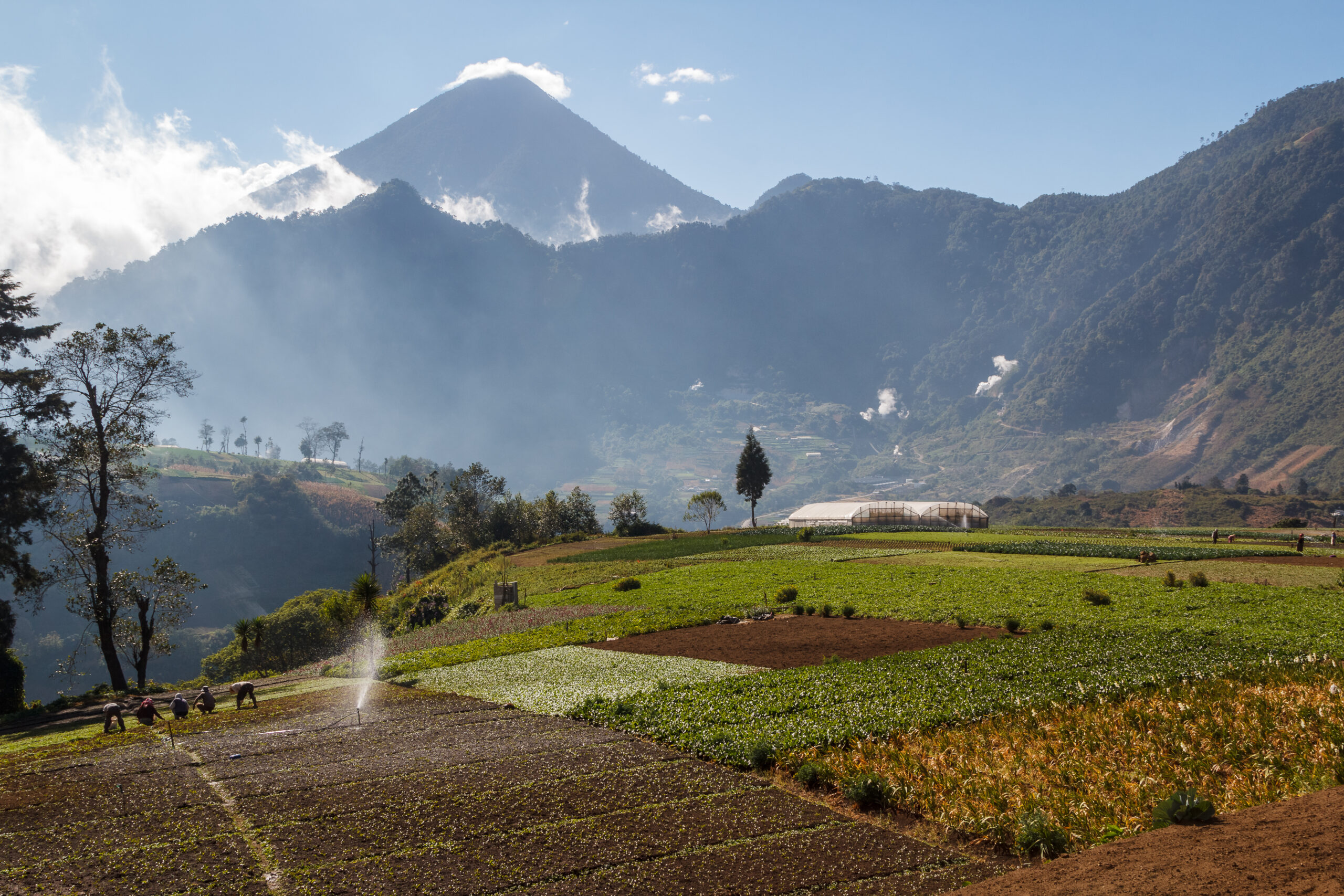Case Study
Accreditation supports organic production in Guatemala
Summary
Through the Ministry of Agriculture, the Republic of Guatemala regulates the correct application of organic agriculture legislation, controls the certification bodies for certified organic operators and registers them, and provides third-party recognition that the Guatemalan organic exportable officer has met the required quality standards for each country and territory the products are marketed to. The main export markets for Guatemalan products are: the United States, Europe, and Japan, among others.
Mandatory compliance to a conformity assessment scheme, confirmed through accredited conformity assessment, ensures the traceability and differentiated value of the product and provides confidence for consumers, in the sense that the production system complies with the international requirements for organic classification.
In Guatemala, organic agriculture is an important industry, because it represents a more favorable price for the national producer, promotes connections among those involved and provides healthy food for people to consume. It is friendly to the environment by promoting conservation, appropriate use of natural resources and protection of biodiversity, helping to mitigate the negative effects of climate change.
Background
In the late ‘90s the Ministry of Agriculture adopted the European regulations regarding organic production, meeting with the interested and involved parties in order to identify the mechanisms required, in order for Guatemalan products to be accessed by larger markets.
In December 2002, the ministerial agreement no. 1317-2002 Provisions on Organic Agriculture was published. The principal objective was to regulate the implementation of the production systems and everything related to processing, packaging, labeling, storage, transportation, and commercialization of vegetables, animals, their products and sub-products.
With the implementation of the national agreement and beginning of compliance to the European Union requirements and other international regulations, one of the main principles was that every product or sub-product, whether animal or vegetable, in transition or organic, must be certified by a certifying agency. This agency must be accredited or recognized according to ISO/IEC 17065 Conformity assessment — Requirements for bodies certifying products, processes and services, and include in its scope of accreditation the regulations of the country where it is developing its services.
In 2007 the Central American Integration System developed and adopted a Technical Central American Regulation: Requirements for the Production, Processing, Marketing, Certification and Labeling of Organic Agricultural Products, being a partial adoption of the Codex Alimentarius Standard GL 32- 1999. With the technical regulation, all the applicable regulations that the Central American countries had were harmonized, replacing their national regulations.
Strategy
In the case of Guatemala, the Ministry of Agriculture is the authority responsible for the registration, official authorization and supervision of operators, and accredited certifying agencies. However, the control system focuses on ensuring that, through accredited conformity assessment, quality is confirmed and the specific requirements of international standards are met.
The certifying agencies may be accredited in another country that is a signatory of the mutual recognition agreements, they may facilitate their operations in Guatemala. The commercial parties, in this case the producer, buyer and certifying agency, agree to exchange and accept the certificate published by the certifying agency that guarantees compliance with the standard throughout the food supply chain. The key elements of the system are focused on:
- Accreditation or recognition of certifying agencies according to ISO/IEC 17065, including national regulations in its scope of accreditation.
- Sampling, testing and analysis by accredited laboratories according to ISO/IEC 17025 General requirements for the competence of testing and calibration laboratories.
- Quality audit of production processes.
- Documentary review of conformity with regulations.
Results and impact
Organic agriculture in Guatemala is an organized production process advancing through obtaining better access to international markets. Currently there are 164 organic operators that include associations, federations, cooperatives and individual producers.
According to statistics from the Ministry of Agriculture, the growth is maintained at an average of 7% per year in production volume, already exceeding 200,000 hectares of arable land. Initially only coffee was offered as an organic product, however, market demand has diversified the Guatemalan organic exportable offer to the following products: cardamom, cacao, macadamia nuts, honey, lettuce, green beans, black tea, papaya, and broccoli, among others.
The mode of cultivation promotes connections between small producers, besides currently allows grouping more than 60,000 farmers throughout the national territory, generating approximately 20,000 permanent jobs and more than 80,000 temporary or indirect jobs. The most important markets for the exports are the United States with 80%, the European Union with 15%, and Japan, Canada and Arab countries with 5%.
Contact
Nombre: Carlos Alejandro Archila Azurdia
Organización: Oficina Guatemalteca de Acreditación
Contacto: carchila@oga.org.gt







